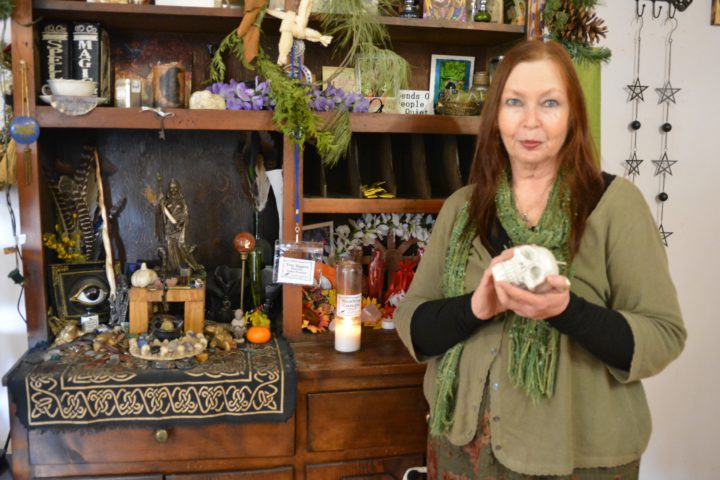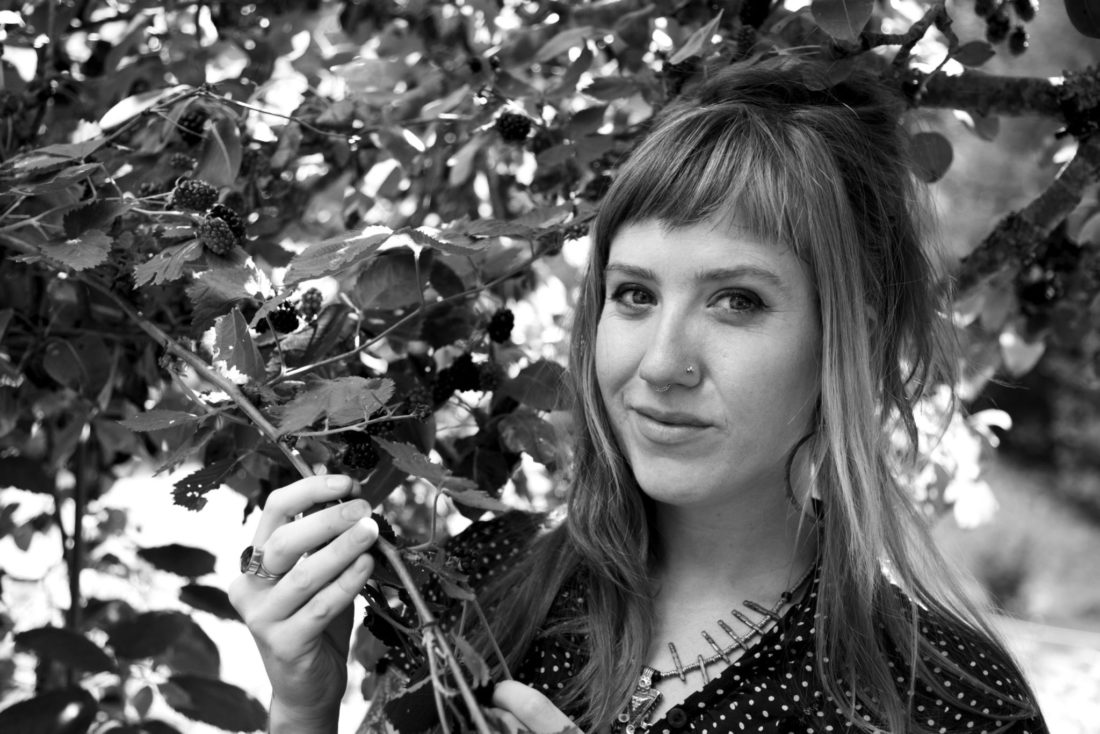The use of plants to cure ailments is as old as humanity itself, but Appalachian folk medicine seems to hold a special charm. Most folks envision Scots-Irish settlers eking out an existence in isolated communities in a place rich in biodiversity. That’s not entirely accurate, however, says ethnobotanist Becky Beyer, a wild food enthusiast and cultural historian.
The English, she says, were the first to settle here among the indigenous people; the Scots-Irish, Germans and West Africans came later.
“It was more diverse than people believe … and our Appalachian folkways are unique because of all their influences,” says Beyer, who’ll lead a workshop on Appalachian folk medicine Saturday, March 14, at the Black Mountain Library. “And although this region wasn’t impenetrable, it wasn’t easy to get to, so people were somewhat isolated.”
In the workshop, she’ll discuss the region’s history and the remedies that are still used today. Participants will also create their own remedy, though Beyer won’t reveal what that will be.
“I like it to be a surprise,” she says.
Beyer has spent years studying the ways people use plants, especially in relation to health. She teaches workshops, some of them through the ecotour company No Taste Like Home, and also writes a blog. In Europe, notes Beyer, some of those plants and practices date back more than 1,000 years.
The early settlers in Southern Appalachia found one of the most biodiverse regions in the world, she says, and the people who were already here had learned which plants had healing properties. Before pharmaceuticals were available, people used plants to combat illness, alleviate pain, help them fall asleep, strengthen the immune system and more. Only in recent years has scientific study proved the efficacy of many of those tinctures and teas.
Byron Ballard, who grew up in rural Appalachia, says she’s studied plant remedies since “before I even knew I was alive. It’s the commonsense way.”
A balanced approach
A teacher and writer who’s known as the Village Witch, Ballard has written several books on Appalachian folkways, including Asfidity & Mad-Stones, which contains chapters on growing and preparing one’s own medicinal plants plus assorted folk remedies, such as placing a cast iron pot with a knife in it under the bed of a woman in childbirth to cut the pain.

Many plant-based remedies remain in wide use today, including elderberries for strengthening the immune system, a cherry-bark-and-honey elixir for coughs and lavender for calming.
“In a time when care was unaffordable or unavailable — a time we’re circling back into — people survived,” notes Ballard. “What we need is a combination of modern and traditional medicines. If I get hit by a car, I’m going to rely on modern medicine to patch me up. But if I have a cough or a headache, I’m going for a traditional cure. … Plantain and olive oil salve can heal that dry, itchy patch of skin just as well as that expensive prescription salve in most cases.”
Beyer came to trust herbal cures when she had an intractable case of mononucleosis while in college. “I was sick for nine months, and nobody knew what to do with me,” she explains.
A friend suggested she see an herbalist, and she decided to try it, since modern medicine seemed to be failing her. The herbal tea for which she was given a recipe began to work in just a few days.
“The chronic cough went away, and I began to feel better,” she recalls, adding, “I spent $5 on those herbs.”
Beyer went on to get a bachelor’s degree in plant and soil science from the University of Vermont and a master’s in Appalachian studies from Appalachian State University.
The biodiversity here, which Beyer calls “overwhelming,” is part of the reason Appalachian folkways are so well known outside the region, she maintains.
Cultural diversity
But the different cultural traditions that came together in the region were also a key factor.
“The human diversity here meant that people brought a variety of traditions with them,” notes Beyer.
Saro Lynch-Thomason, interim director of the Swannanoa Valley Museum, agrees. “An African American enslaved woman might find a familiar plant or a new one with familiar properties,” she says. “She might use the knowledge of a farmer of Scots-Irish descent or an indigenous person. People shared information, relied on each other and created new traditions.”
As modern medicine progressed, many people in rural areas still trusted the old, traditional remedies more than the doctors who used chemicals instead of plants, Beyer points out.
And as pharmaceuticals have become increasingly expensive, adds Ballard, people are returning to traditional medicines. That also has a downside, however.
“The problem is that the plants are being commodified and overused. Goldenseal and ginseng are both becoming endangered,” she says. “We have to pay attention to how the plants we use are grown and protected. We have to learn to be in relationship with the plants and not just take what we want. Be respectful of whether they are wild or responsibly grown.”
Swannanoa Valley Museum’s Appalachian craft and music series
Saturday, March 7: Introduction to Appalachian Ballad Singing
Saturday, March 14: Introduction to Appalachian Folk Medicine
Saturday, March 21: Making Log Cabin Quilt Squares
Where: Black Mountain Library, 105 N. Dougherty St., Black Mountain
Cost: $30 per workshop for museum members, $35 for nonmembers; full series $80 for members, $95 for nonmembers. Tickets are available on the museum’s website or by calling 828-669-9566.




Becky Beyer is correct, the English were the first European settlers to the region, still have families here and much of what they brought with them is deeply reflected in Appalachian folk remedies … including things made with honey, ginger and the like. Very nice to see folks like Becky Beyer and Jake Richards on the scene. They bring a different, however familiar voice, to this rich field of topics.